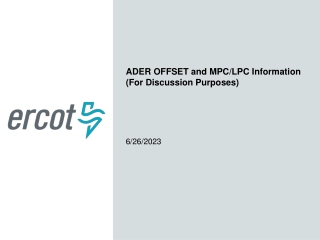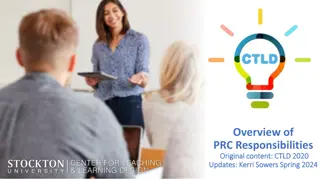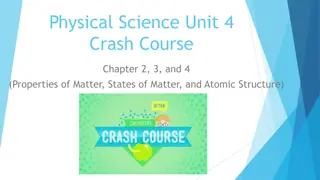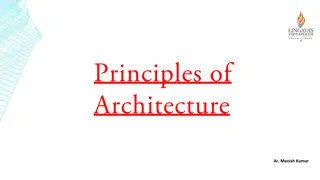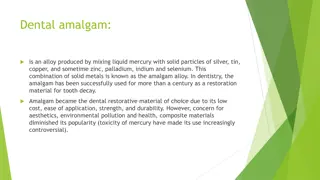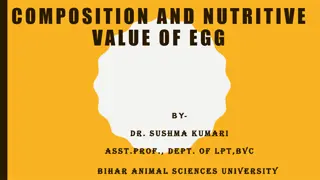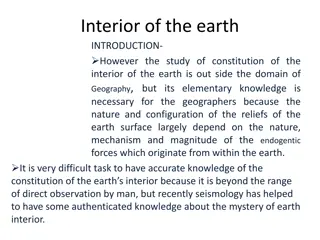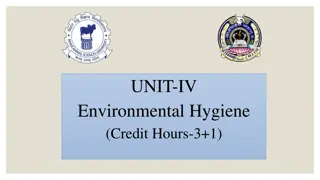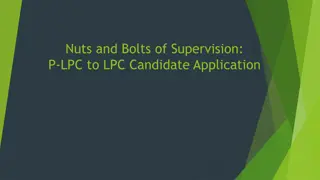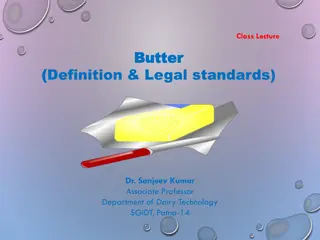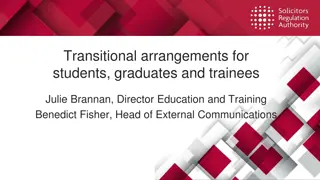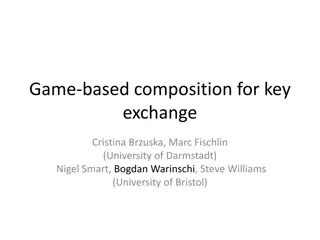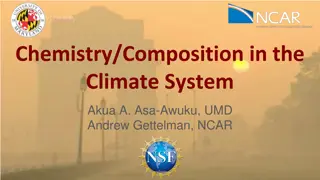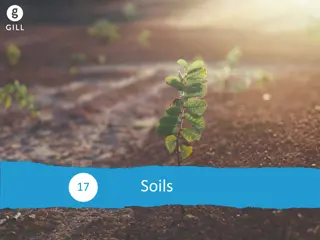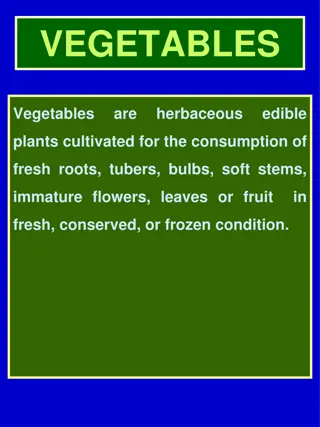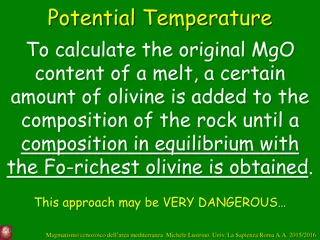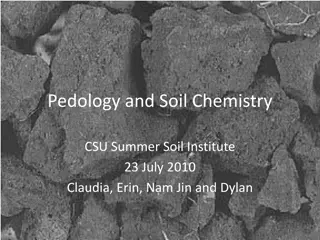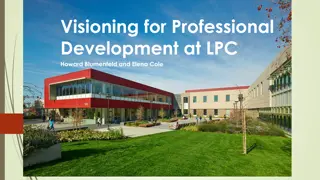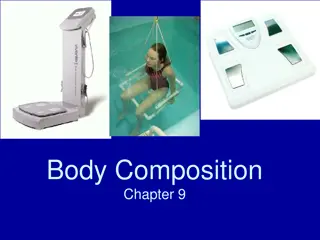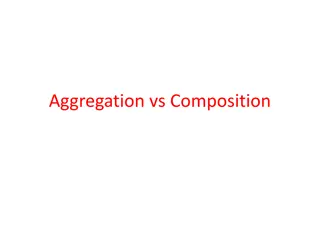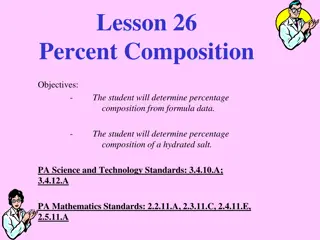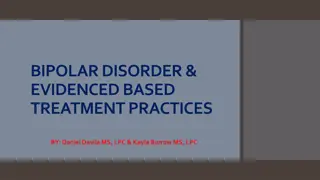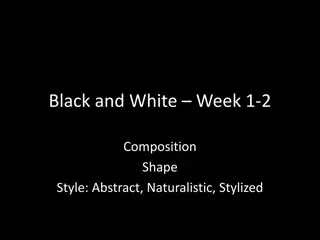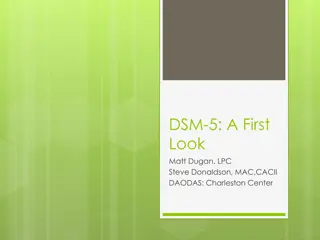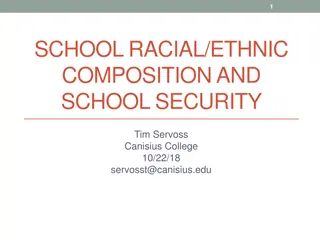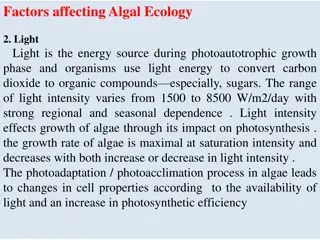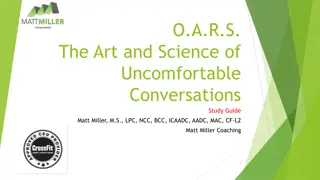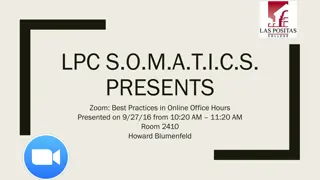Presentation to the Portfolio Committee
Overview of the state of governance in the higher education sector, including key roles, institutional statutes, and the composition of councils. Highlights include the regulations under the Higher Education Act and the publication dates of institutional statutes for various universities. Emphasis i
2 views • 83 slides
Understanding ADER Offset and MPC/LPC Information
Explore the concept of ADER Offset and MPC/LPC information for energy resources, focusing on response capabilities, net power flow, and offset applications. Examples illustrate how the ADER is managed with and without offsets, alongside bid strategies in energy markets.
2 views • 6 slides
Understanding Terrestrial Planets and Core Dynamics
Exploring the core-mantle interaction from the early Hadean period to present times reveals intriguing questions about the outer core's electrical conductivity, geodynamo sustainability, and inner core characteristics. Studies indicate challenges in maintaining the geodynamo, potential heat sources
9 views • 48 slides
Understanding Autism Acceptance vs. Awareness & Why It Matters
Trainings led by Emily Whaland, LPC, highlight the shift from awareness to acceptance in understanding autism. The sessions focus on fostering diversity, enhancing transition planning, and empowering autistic voices. Rejecting stigma and stereotypes, the agenda encourages active involvement and supp
2 views • 23 slides
Insights into Milk Composition and Processing
Worldwide, milk is collected from various animals such as cows, goats, sheep, yaks, and water buffalo. The composition of milk includes water, lactose, butterfat, protein, and minerals, each playing a vital role in its nutritional value. The butterfat content determines the richness of dairy product
7 views • 41 slides
Overview of PRC Responsibilities
This overview covers the composition and responsibilities of the Program Review Committee (PRC), including membership requirements, election processes, and roles of the PRC Chair. It also touches upon the Library Promotion Committee (LPC) composition and the duties of the PRC Chair within academic i
2 views • 13 slides
Exploring the Composition of the Universe
The universe is a vast expanse consisting of various components. Only 0.4% comprises galaxies, while hydrogen, helium, protons, neutrons, and electrons make up 4%. The remaining 96% includes photons, neutrinos, dark matter, and dark energy. Photons, fundamental particles of light, exhibit different
0 views • 30 slides
Understanding Properties and States of Matter in Physical Science
Matter is made up of elements that cannot be broken down further. Different mixtures have distinct properties, such as solutions, colloids, and suspensions. Physical properties like viscosity and density can be observed without changing the material's composition. Chemical properties, like flammabil
2 views • 15 slides
Exploring the Composition of Earth's Oceans
Delve into the composition, location, and subsurface topography of the world's oceans, discovering the chemical makeup of ocean water and its vast salt content. Uncover fascinating facts such as how the salt in the oceans could create a 500-foot thick layer if spread over Earth's land surface. Engag
1 views • 16 slides
Exploring Melodic Ideas with Pentatonic Scales in Music Composition
Delve into the world of music composition by understanding and utilizing pentatonic scales to develop captivating melodies. Learn key terminology, explore the C pentatonic scale, and discover how major and minor pentatonic scales can influence the mood of your compositions. Dive deep into the power
1 views • 18 slides
Principles of Architecture: Unity, Contrast, Mass Composition
Explore the fundamental principles of architecture focusing on unity, contrast, and mass composition. Unity emphasizes harmony among building elements, contrast adds interest without disrupting unity, and mass composition involves arranging shapes in a harmonious way. Proportion and scale play key r
0 views • 24 slides
Overview of Dental Amalgam: Composition, Uses, Advantages, and Disadvantages
Dental amalgam is an alloy used in dentistry for restorations, consisting of silver, tin, copper, and other metals mixed with liquid mercury. Despite its long history of use due to cost-effectiveness and durability, concerns about aesthetics, toxicity, and environmental impact have led to a decrease
1 views • 22 slides
Understanding Atmosphere Composition and Structure in Climatology
The study of climatology, focusing on the atmosphere, is presented by Dr. Banashree Saikia, covering topics such as atmospheric composition, insolation, temperature variations, atmospheric pressure, wind systems, atmospheric moisture, climatic classification, cyclones, and monsoons. The atmosphere,
1 views • 9 slides
Nutritive Value and Composition of Eggs by Dr. Sushma Kumari
The composition and nutritive value of eggs, as presented by Dr. Sushma Kumari from Bihar Animal Sciences University, cover various aspects including the physical composition of eggs, the composition of an eggshell, and the chemical composition of eggs. The presentation delves into details such as t
0 views • 19 slides
Understanding the Composition of Earth's Interior: Insights from Density, Pressure, and Temperature
The constitution of the Earth's interior plays a crucial role in shaping the surface features we observe. Although direct observation is challenging, seismic studies offer valuable insights. The density, pressure, and temperature within the Earth provide essential clues to its composition. Rocks' de
0 views • 14 slides
Understanding Environmental Hygiene: Air Pollution and Composition of Air
The content delves into the concept of atmospheric pollution, the composition of pure and impure air, sources of air pollution, and the zones of the atmosphere. It highlights the detrimental effects of pollutants on health and the environment, emphasizing the importance of environmental hygiene. The
1 views • 27 slides
A Comprehensive Guide to LPC Supervision and Application Process
Explore the nuts and bolts of supervising P-LPC to LPC candidates, including supervised experience requirements, documentation processes, submission guidelines, and application steps. Learn about reporting supervised hours, completing supervision documentation, and making recommendations for LPC can
0 views • 12 slides
Understanding Moles and Formula Mass in Chemistry
Dive into the world of moles, Avogadro's number, and formula mass calculations in chemistry. Learn how to convert moles to grams, grams to moles, and determine the number of atoms using Avogadro's number. Explore the concepts of formula mass and percentage composition to understand the composition o
0 views • 19 slides
Understanding Butter: Definition, Standards, and Composition
Explore the definition of butter according to FSSAI standards, including its composition, permitted additives, and classifications based on acidity, salt content, end-use, and manufacturing practices. Discover the nutritional composition and fatty acid profile of butter along with essential informat
0 views • 10 slides
Transitional Arrangements for Students, Graduates, and Trainees in Legal Education
Explore the transitional arrangements and requirements for students, graduates, and trainees pursuing legal education. Find information on qualifying criteria, routes, deadlines, and options related to law degrees, conversions, Legal Practice Course (LPC), training contracts, and Solicitors Qualifyi
0 views • 8 slides
Secure Composition of Key Exchange Protocols
Explore the game-based composition approach for key exchange protocols, focusing on ensuring security in compositions with arbitrary tasks and the universal composability of protocols. Delve into the Bellare-Rogaway security model and the details of security games in protocol analysis. Understand ke
0 views • 25 slides
Changes in Funding and Contracts for LPC Contractor Meetings
This slide deck published by PSNC offers comprehensive information on funding changes, contract alterations, and various schemes affecting LPC contractor meetings. It covers topics like Quality Payments scheme, NUMSAS, and other essential contract modifications. The deck provides essential updates a
1 views • 40 slides
Understanding Chemistry and Composition in the Climate System
Dive into the intricate relationship between chemistry and composition in the climate system, exploring topics such as radiative effects, stratosphere-troposphere coupling, aerosol-cloud interactions, and the impact of various gases and particulates on radiative forcing. Discover how changes in comp
0 views • 25 slides
Understanding Soil Composition and Importance
Explore the world of soil and its significance as a natural resource by discovering its composition and how it affects plant growth. Learn about the main ingredients of soil, its permeability, and the role of water, air, and organic matter. Gain insights into how soil supports plant life through lea
1 views • 30 slides
Comprehensive Guide to Nutritional Value and Composition of Vegetables
Vegetables are herbaceous edible plants cultivated for consumption in various forms like fresh, cooked, or as salads. They are rich in essential nutrients such as protein, carbohydrates, vitamins, and inorganic salts. The tables provided detail the main nutrient constituents and composition of vario
1 views • 25 slides
Understanding Olivine Equilibrium in Calculating Original Magma Composition
The process involves analyzing olivine in basaltic rocks, selecting olivine with the highest Fo content, calculating the melt composition in equilibrium with this olivine using the distribution coefficient (KD), and determining the potential temperature (Tp) based on the MgO content. The distributio
0 views • 30 slides
Soil Chemistry and Mineralogy Analysis at CSU Summer Soil Institute
Explore the comprehensive analysis of soil chemistry, texture, and mineralogy conducted at the CSU Summer Soil Institute in July 2010. The study delves into pedology, elemental composition, particle size distribution, X-ray diffractometry, and mineralogical composition of various soil samples. Detai
0 views • 22 slides
Greater Manchester LPC Dementia Framework and Dementia Action Alliance Initiative
The Greater Manchester LPC is actively involved in the Dementia Framework and Dementia Action Alliance initiatives to improve the lives of people with dementia. They are establishing Local Dementia Action Alliances, providing training for pharmacy staff, and collaborating with strategic partners to
0 views • 12 slides
Professional Development Opportunities at LPC
Explore a variety of professional development opportunities at LPC, including committee meetings for planning FLEX days and activities, small group discussions on topics like work/life balance and post-election culture, websites for current events and archives, and Teaching Institute meetings focusi
0 views • 13 slides
Understanding Body Composition: Types, Measurement Methods, and Impacts on Health
Body composition is a key aspect of overall health and fitness. It involves understanding different somatotypes - ectomorph, endomorph, and mesomorph, as well as distinguishing between lean body mass and body fat. Various methods such as underwater weighing, electrical impedance, skinfold measuremen
0 views • 26 slides
Understanding the Difference Between Aggregation and Composition in Object-Oriented Programming
Aggregation and Composition are two important concepts in object-oriented programming. Aggregation refers to a 'has-a' relationship where the contained object can survive independently, while Composition indicates that the member object is part of the containing class and cannot exist separately. Th
0 views • 15 slides
Understanding Percentage Composition in Chemistry
Percentage composition is crucial in determining the elemental composition of compounds. This lesson explains how to calculate percentage composition using molar masses, illustrated with examples like copper sulfide. It also delves into hydrated salts and their significance in chemistry. Students wi
0 views • 22 slides
Understanding Bipolar Disorder and Evidence-Based Treatment Practices
This presentation by Daniel Davila, MS, LPC, and Kayla Burrow, MS, LPC delves into the complexities of bipolar disorder, potential crisis outcomes, and mental illness management through evidenced-based treatment practices. Topics covered include bipolar diagnosis, assessing disorder lethality, treat
0 views • 44 slides
Challenges and Innovations in CXL 3.0 Dynamic Capacity Devices
Exploring the intricacies of CXL 3.0 Dynamic Capacity Devices presented at the LPC CXL micro conference 2023, focusing on asynchronous memory operations, partial extents, interleaving flow challenges, and memory sharing. The discussion delves into the dynamic capacity feature allowing memory changes
0 views • 17 slides
Understanding Composition in Art: Techniques and Examples
Explore the concept of composition in art through various styles such as abstract, naturalistic, and stylized representations. Learn about the vocabulary and skills necessary for effective composition, with examples from renowned artists like Leonardo da Vinci, Georges Seurat, and more. Discover how
0 views • 43 slides
Understanding DSM-5: A Clinician's Perspective on Revisions and Changes
DSM-5, authored by Matt Dugan, LPC, and Steve Donaldson, MAC, CACII, provides a comprehensive look at the revisions and changes from DSM-IV-TR. It discusses the importance of evolving diagnostic systems to capture clinical experiences effectively. The book emphasizes the need for a dimensional appro
0 views • 46 slides
Impact of Racial/Ethnic Composition on School Security
This study by Tim Servoss at Canisius College explores the relationship between racial/ethnic composition of schools and their security measures. Analyzing data from the 2015-2016 School Survey on Crime and Safety, the research investigates how the percentage of Black and Hispanic students in school
1 views • 11 slides
Factors Affecting Algal Ecology: Light Intensity Impacts on Algae Growth and Composition
Light intensity plays a crucial role in the growth and composition of algae. Algae undergo photoadaptation processes to adjust to varying light levels, affecting their photosynthetic efficiency and cellular properties. High light intensity can lead to photoinhibition and changes in cellular composit
0 views • 19 slides
Mastering Uncomfortable Conversations: O.A.R.S. Study Guide by Matt Miller, M.S., LPC, NCC
Discover the foundational principles of Motivational Interviewing with OARS, focusing on Open-ended Questions, Affirmations, Reflective Listening, and Summarizing. Learn how to engage clients effectively through genuine communication skills, positive reinforcements, and reflective listening to build
0 views • 28 slides
Best Practices in Online Office Hours
This seminar, presented by LPC S.O.M.A.T.I.C.S., focuses on the purpose of online office hours, the requirements outlined in the FA contract, the concept of regular effective contact, struggles faced in holding effective online office hours, reasons for using Zoom, and a demonstration of online offi
0 views • 17 slides

